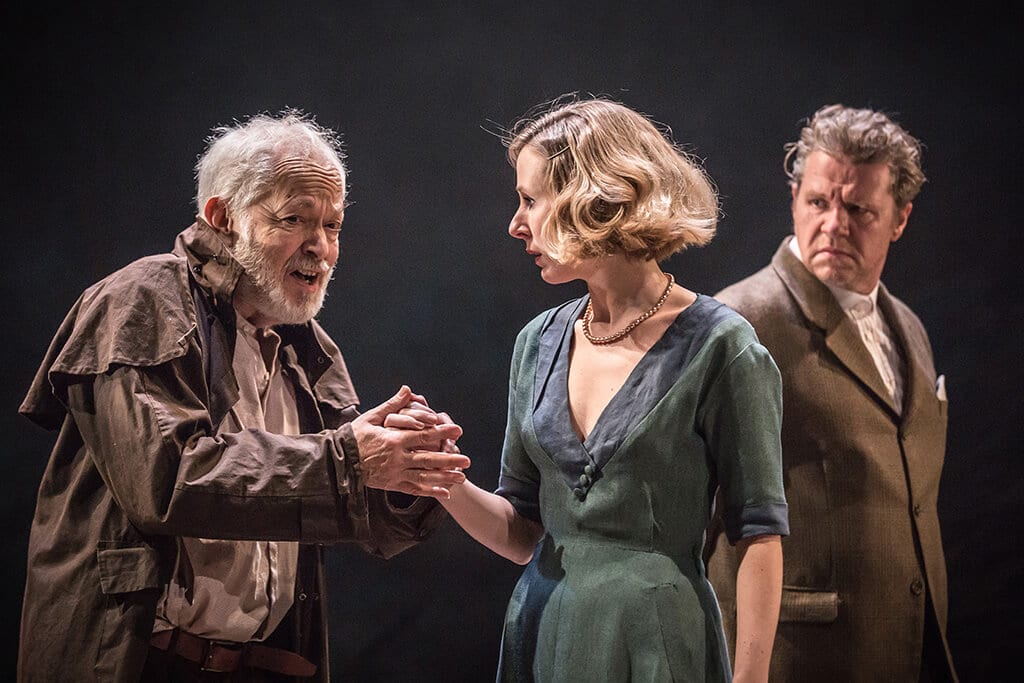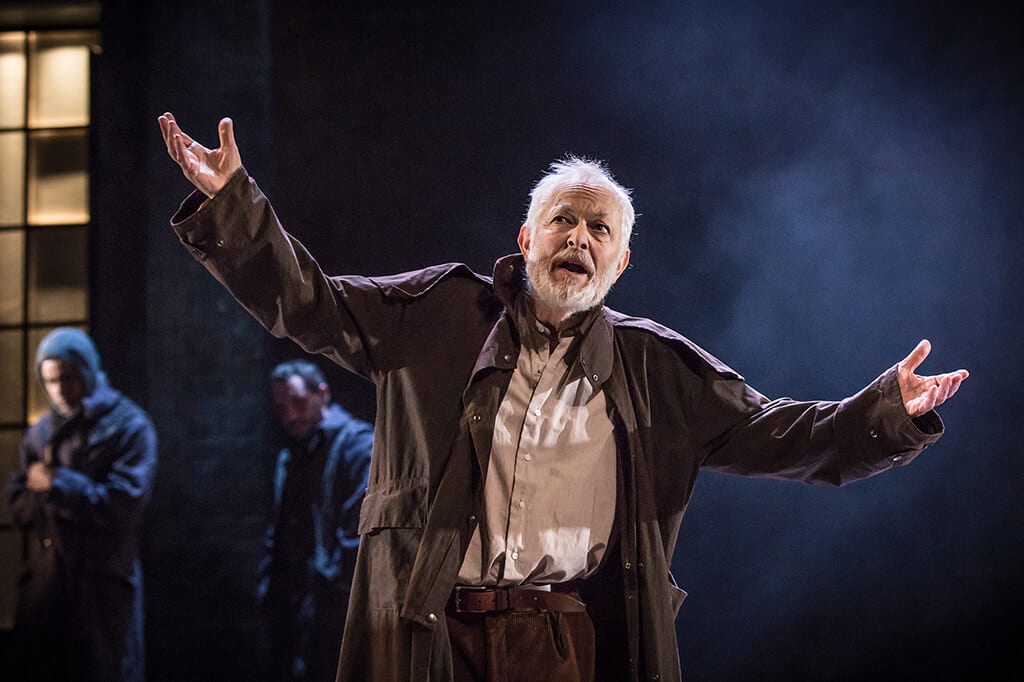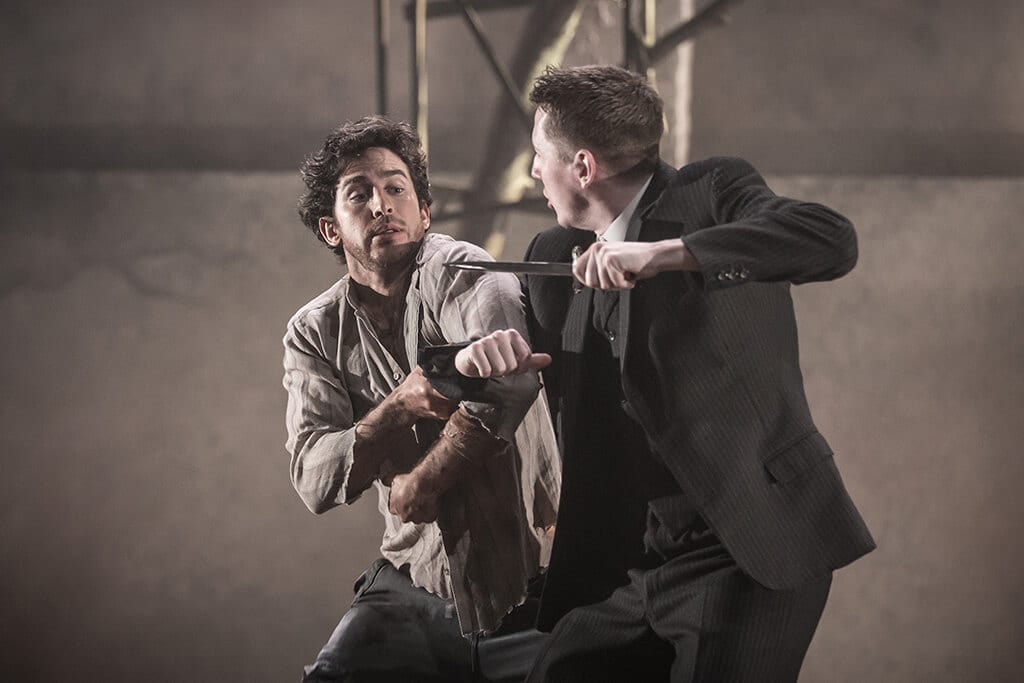The Richmond Theatre’s wonderful ‘King Lear’ opens with discord: the fragile but steely-eyed Cordelia (Beth Cooke) enters the bare stage alone and fires a shot from an oversized musket into the air. This clashes with the peaceful, harmonious, prayerful choral singing which follows: straightaway there is a disparity shown between the togetherness of the community and the plight of the individual. This is immediately re-enforced by Lear’s expression of a ‘darker purpose’, a secret intention: his decision to divide up his kingdom between his daughters, and to test their love for him, the ensuing fallout splitting country and family.
The action is fast-paced, with scenes immediately piling on top of each other, with no pause for breath, and a thriller tension propelling things forward. The gloomily-lit stage is mostly unadorned, with tall cavernous walls and deep shadows, briefly giving way to sudden bright light on individual players’ soliloquies. There is no sense of warmth or homeliness – if this is ever spoken off it is offset a few minutes later by hidden desires revealed to the audience, who alone overhear all. There is little barrier between outside and inside, they seem interchangeable: the house as barren as the external world people are expelled into, which the minimal theatrical setting only enhances.
But the tensions, constant comings and goings and hurried, whispered corridor intrigues don’t impact on the clarity of Shakespeare’s language: this is beautifully enunciated throughout by the whole cast, the events on stage echoed by and reflected on by the language’s repeated references to ‘birth’, ‘issue’, ‘age’, ‘sight’, ‘madness’, ‘age’, ‘bastards’, ‘baseness’, ‘heavens’, ‘nothing’. The whole earth seems a macrocosm of Lear’s coming undone, as we see further fraught divisions within Gloucester’s family, the banishment of Kent, and the conniving of Goneril (Catherine Bailey) and Regan (Sally Scott), while the Fool (Joshua Elliott) also shares his master’s fate.
Michael Pennington’s Lear seems lost and confused from the start, already slightly ragged and windswept, caught up in his own myopic world view, unable to see any other perspectives. Pennington’s physical inhabiting of the part – moving from rage, to distraught, to broken – is so carefully considered and empathetic that we notice every subtle gesture, at times reminiscent of Orson Welles in his most wounded, torrential, stentorian moments. This performance was sensitively complemented by, in particular, the more understated Gloucester (Pip Donaghy) and, on the flip-side, the part wide-boy, Machiavellian and shameless Edmund (Scott Karim).
But what most struck in such a busy play was the production’s exquisite handling of the quieter, more solitary moments set apart from the hustle and bustle and squabbles. These emerge in quiet bursts: Gloucester sitting late in the play, at the back of the stage, head bowed, and lit by the sun, birds chirping and nature alive while battle rages; Edgar (Gavin Fowler) desperately watching his blind father, full of regret; the Fool’s ‘This is a brave night to cool a courtesan’; Lear’s soft, self-revelatory ‘I did her wrong’. And there were many more. I urge you to see them for yourselves.



